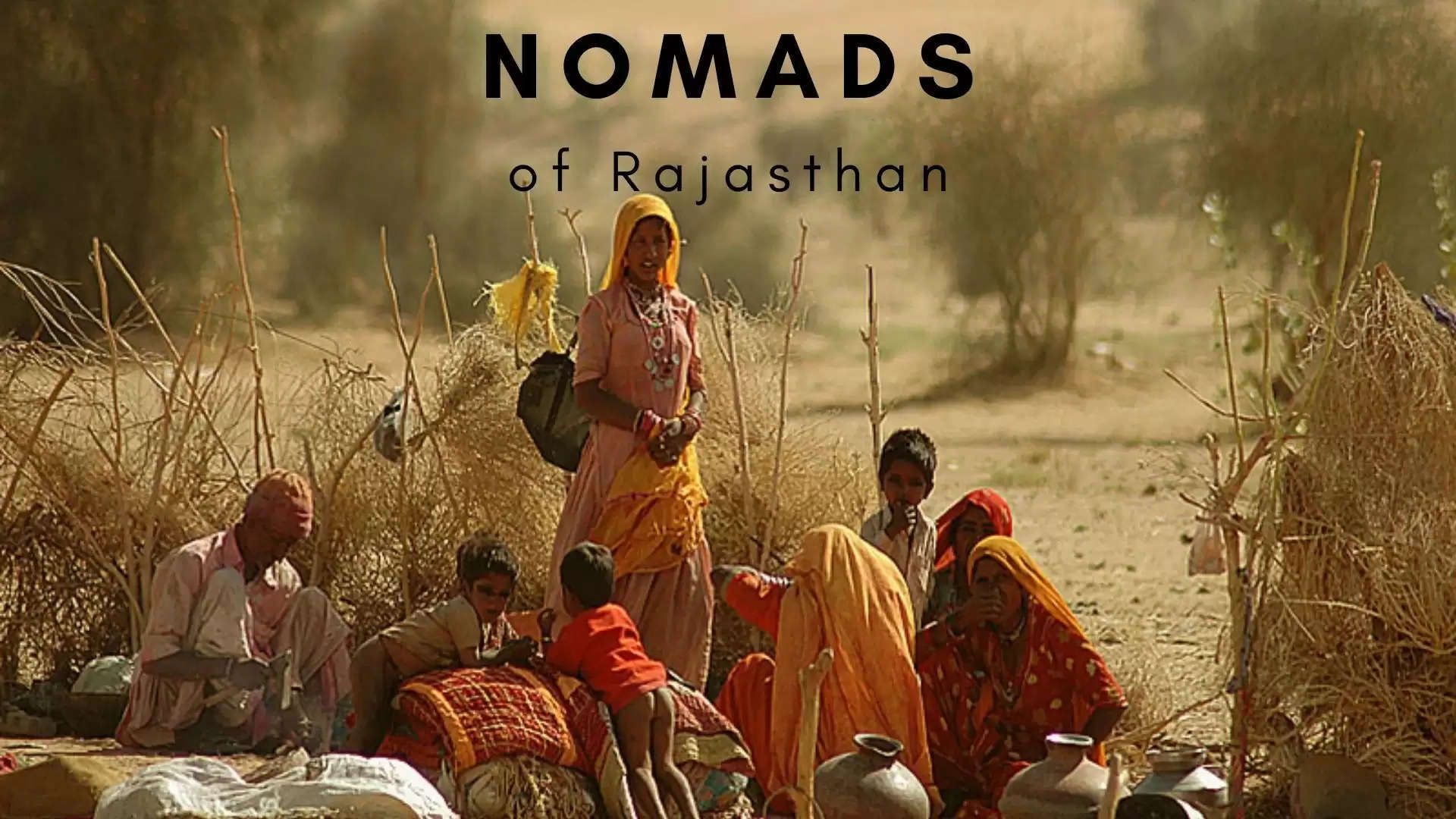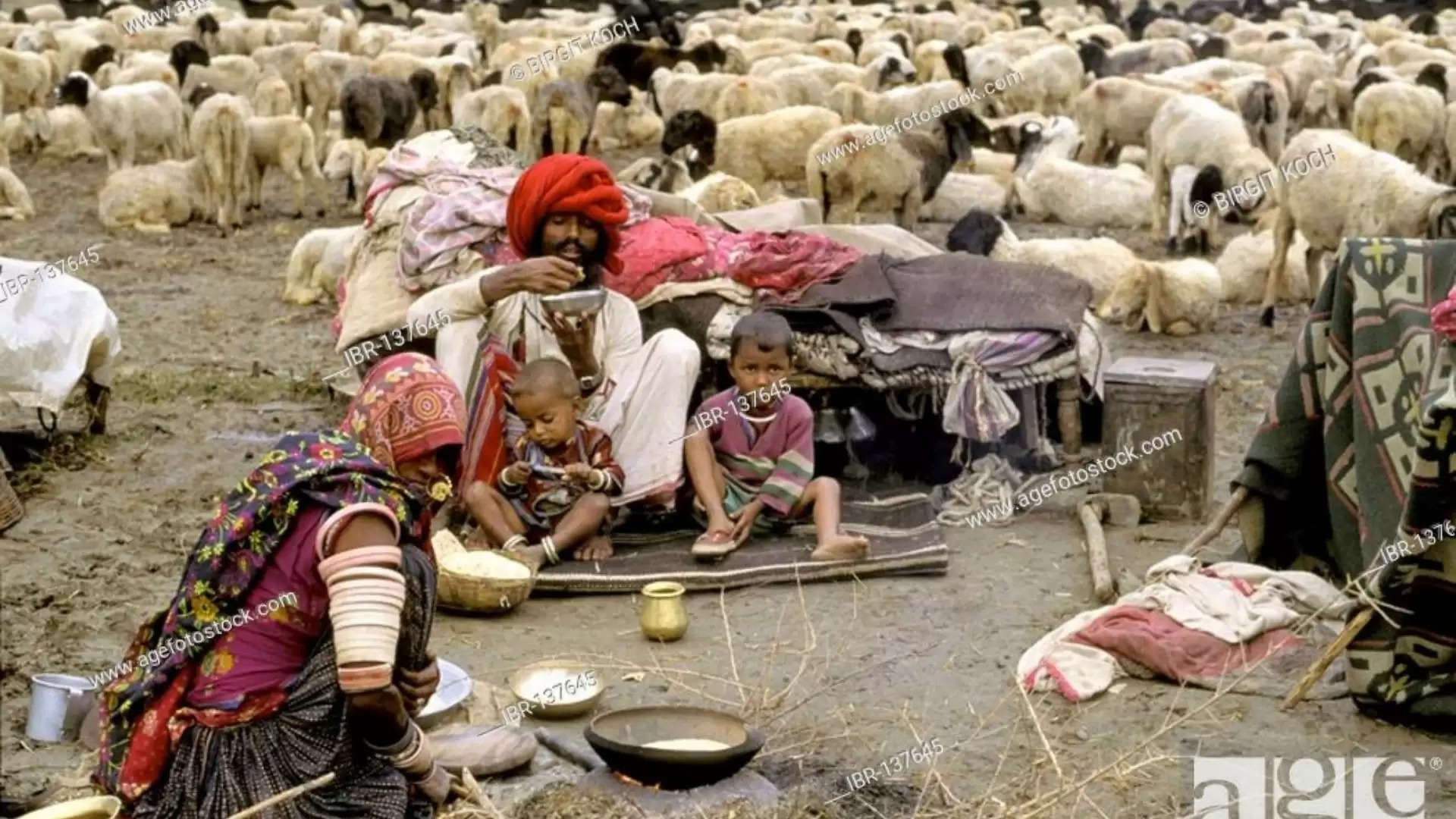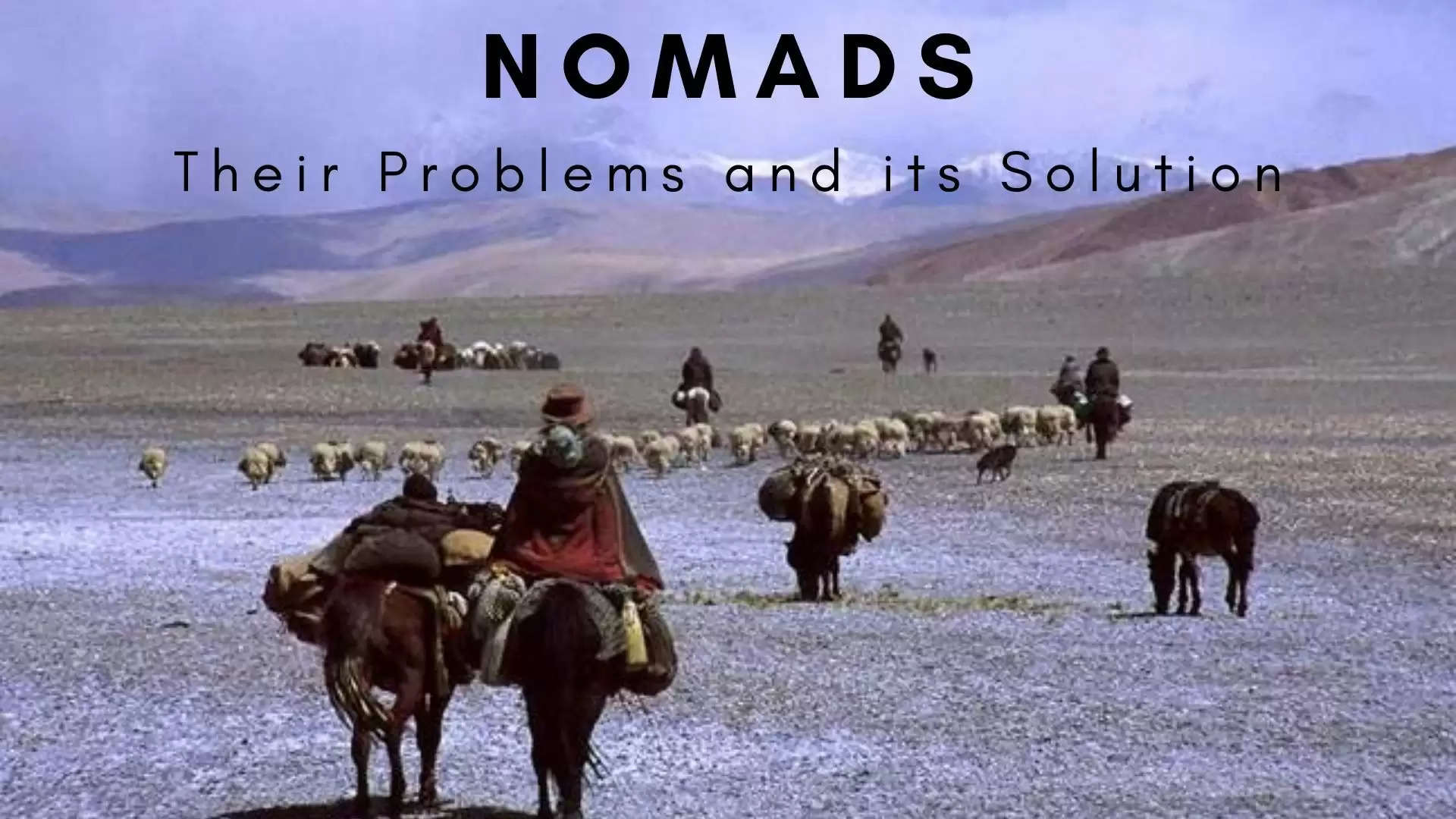Problems of Nomads and suggested solutions
A brief on the Nomads and how certain concentrated steps will drastically improve the conditions of nomads without much interference in their way of life.
These types of improvements, though they will take some time, will help in largely retaining the genetic pool of these nomads.
In this piece of writing I denote “We” for us or people who call themselves the civilized ones, especially city dwellers, scientists, doctors, teachers, businessmen etc and “They” for the groups of nomads who go from one place to another with their live-stock and whom most of us consider uncivilized.
To find the solution for the problems of Nomads, first of all, we have to compare the pros and cons of their lifestyle.
At present we are not in a position to ascertain if our so-called civilized world is progressing or going backwards. Anyway, most of the literate people believe that by conquering the sea and air and by over exploiting the natural resources we are in a commanding position as far as nature is concerned and we are therefore progressing.
We measure the progress comparing us with the West but the West has very limited vision. They measure the progress in economical terms that is more or less connected to industrial development and exploitation, i.e., exploitation of the weak and exploitation of the natural resources.

One of the ideas or idioms floated by the west, which was readily adopted by most of the economically poor countries, is “intellectualism”. Many groups and societies are formed and they call themselves intellectuals. One who says that he is wise is a fool of first order. We have started considering ourselves wise and educated. This is one of the major follies and gradually this distorts the meaning of education, because here we confuse education for literacy, knowledge for wisdom.
Education comes from family and environment while literacy is acquired by man from institutions.
However, I will not go further into explaining this here. It will be self-explanatory as we proceed with a generalised comparison.
We |
They |
|
| 1. |
We are rich in diseases. |
They are not so rich in diseases. |
| 2. |
We are less educated. |
They are more educated. |
| 3. |
We are more literate. |
They are less literate. |
| 4. |
We are less courageous. |
They are more courageous. |
| 5. |
We are better placed economically. |
They are not so economically sound. |
| 6. |
We are less hospitable. |
They are more hospitable. |
| 7. |
We have less longevity. |
They live longer than us. |
| 8. |
We have less endurance. |
They have more endurance. |
| 9. |
We have poorer physique. |
They are of stronge physique. |
| 10. |
We have less stamina. |
They have more stamina. |
| 11. |
We are greedier. |
They are less greedy. |
| 12. |
We are more possessive. |
They are less possessive. |
| 13. |
We are more selfish. |
They are less selfish. |
| 14. |
We have less resistance. |
They have more resistance. |
| 15. |
Our lifestyles are not simple. |
They lead a very simple life. |
| 16. |
Our daily requirements and consumption are more. |
Their daily requirements and consumption are much less. |
| 17. |
We are less laborious. |
They are more laborious. |
| 18. |
We have more tensions and more mental diseases. |
They have very little mental tensions and negligible mental diseases. |
| 19. |
We breathe in polluted air. |
They breathe in fresh air. |
| 20. |
We live in an artificial environment away from nature. |
They live in perfect harmony with nature. |
| 21. |
We are less honest. |
They are more honest. |
| 22. |
We have more modern amenities. |
They have almost none of it. |
| 23. |
We, especially middlemen, exploit them. |
They hardly exploit anyone. |
| 24. |
We have full faith in God. |
But their faith in God is stronger than us. |
| 25. |
We don’t know much about jungle craft. |
They are masters of jungle craft. |
| 26. |
We can't withstand extreme climatic change with ease. |
They can withstand it easily. |
| 27. |
Our knowledge of herbal medicines is less. |
Their knowledge of herbal medicines is more. |
| 28. |
Our allopathic medicines are more potent and quick acting. |
Their herbal medicines are less potent and slow acting. |
| 29. |
In surgery and orthopaedic and other branches of medicine we are quite ahead. |
In this field they are far behind. |
| 30. |
We mostly depend upon notes and writings. |
They depend upon their memory. |
| 31. |
Our memory is fair. |
Their memory is very sharp. |
| 32. |
We are less intelligent. |
They are far more intelligent. |
Here, I want to clarify the point about education and literacy. Most of them don’t know mathematics but a young boy at a single glance can tell from his grazing flock of sheep and goats (of hundreds and hundreds) how many animals are missing from it. Most modern computers are unable to perform such a feat in such short a time. If a sheep or goat is lost and mixed in some other herd and gone, and the owner comes across the animal after a lapse of one or two years, he can recognize it from a flock of one thousand animals; not only that particular animal but also its progeny!

33. They are more scientific and know and understand the ecological balance more than us. Many a times they come across warmer places where the pastureland is good and where they can get fodder for their animals round the year, but still they don’t stay there for long periods. If they do so the place would become barren within a span of 5 to 6 years. They know this rule of nature and go on mounting from one place to other and simultaneously fertilize the places with the pallets and urine of their livestock. When they give rest to the place, i.e., when they move away from the place, the damage done by the grazing flock to the vegetation is compensated and during this rest period the vegetation grows again more or less to the extent of the previous one.
34. Regarding diseases of animals their diagnosis is perfectly updated but their herbal preparations are very slow acting, and they don’t have much time to look after the ailing animals.
There are lot many other points that can be compared but I think that these are the major ones and we don’t need to go into further detail. Of the thirty-four points that I compared, only four are such in which they need help. Another question one can ask is that apart from meat and wool, which they provide to the nation, their other talents and intelligence are wasted or are not being properly harnessed to the betterment of the nation.
Now there are two alternatives to improve their four major drawbacks:
- To improve their drawbacks without hindering their nomadic ways.
- To settle them in one place and help them improve their drawbacks.
To settle them in one place shall be disastrous to the country. It will create a major communication gap between different villages on their migrating routes. They always carry numerous messages from one village to another from hills to plains. Even if we improve the communication between these villages, still it cannot replace them. For example, they know family history of many people residing in different villages far apart from each other. They provide matrimonial services to these villagers. There are several other secret family messages they convey to distant villages.
They have a diverge genetic pool. Whether it is due to constant geographical changes or due to periodical climatic changes or varied vegetation (which they encounter either directly or indirectly) or the combined effect of all these natural forces is yet to be ascertained. If we settle them in one place, we are bound to lose in due course of time this diversity or the peculiarity of these nomads.
Their tradition and culture is also somewhat different from others and settling them in one place will deprive the country of a very old culture that they inherit.
Ways and means to improve their living without interfering in their way of life:
For imparting literacy, we have to select some young nomads or some persons of the same group who have already left this type of life and are literate and enthusiastic enough to take the task willingly of starting a mobile school for them. Here I should mention that if we introduce teachers other than their own kind, they are bound to introduce some diseases that are unknown to them and they might also interrupt their traditional mould. It might also result in eradicating some of the very old traditions in a short span of time, which are actually very advantageous. If we meddle with the traditions the effect of that will be dawdling and possibly will take considerable time for us to know it. And before we would realize our mistake it will be too late.
There can be two schools, one for adults and the other for young ones. According to their convenience, the schooling can be done either in the afternoon or in the evenings. At the time of harvesting there can be holidays so that without loss they can harvest the crop.
Up to 8th and 10th standards there can be conventional schooling. Then teachers can identifythe talented and send them to cities for higher education. Remaining people can go for two years of technical training. Technical training can be categorised as under:
- Veterinary training – In this the students can go through the preliminary training for one year and for second year they should be thoroughly trained for the remedies of livestock that they are rearing.
- Allopathic medicinal training – Two years course to train them how to treat minor and common ailments, how to drain minor abscess etc. They should be provided with a wireless set so that for some complicated case they can inform higher authorities and a mobile hospital can go and do the needful or evacuate the patient.
- Midwives and other interested girls can be trained for ladies' ailments, especially the midwives for hygienic delivery, care of mothers and babies, vaccination etc.
- Agricultural Courses – Two years course of agriculture can be introduced for the willing students so that they can improve the yields by modern techniques.
- Forestry – This course should be included for social forestry. Fields possessed by them having very low yield or situated on some undulating ground can be converted for social forestry which can give more financial support to them than conventional agriculture. There should be a training of minor forest produces, which have some commercial value, so that these can be collected by them during their wanderings or can be grown on suitable lands of their own. These should be directly purchased by the government agencies so that they get maximum benefit out of it. For this government purchase depots should be opened in places of their route at some suitable distances so that they can sell whatever they have collected and they don’t have to wait long or carry the burden for a long time till they return.
- Cottage Industries – Willing girls and women after finishing the primary schooling can go for cottage industries. Government should purchase the wool produced by them and after processing and finishing that wool give them back for manufacturing of woollen sweaters, woollen garments, carpets etc. For this purpose, they should be provided with hand operated portable machines. To use them properly they can be trained in classes. The finished goods can then be purchased by the government on appropriate wages or spot remuneration.
On lean days and during their wanderings, government should provide them fodder for their animals on subsidized rates and should open several such depots at suitable places.
As the trained medical practitioners, midwives and vets should get monetary gain after their training. Government should give them salary for their services. They should be instructed to treat, apart from their own community, any person or animal that needs help which they come across during their wanderings.
Promising youths having good physiques and stamina can be selected and trained by coaches for sports and I am sure that persons selected from such a lot may stand for international competition especially in walking and other such type of heats.
In my opinion the above-mentioned steps will drastically improve the conditions of nomads without much interference in their way of life. These types of improvements, though they will take some time, will help in largely retaining the genetic pool of these nomads.
The other alternative is to settle them in one place though I am not in favour of this type of a solution. Experts should search for some pastureland in moderate climatic zone. Then they should calculate the carrying capacity per hand of that land, then find out how many families of nomads are there and how many animals are there with each family.
Suppose one family has one thousand sheep and goats and suppose the animals require four hectares of pastureland that has its carrying capacity calculated. For this family government should allot say 3 plots of 4 hectare of fenced pastureland. For the first year a plot of 4 hectares will be opened for grazing then next year the second plot and the third year third plot and so on. This will give a rest of two years to each plot and during this rest period the plot will again be capable of withstanding the grazing pressures.
This is for one family, but this can be applied for the whole community. Near this pastureland, a colony of the nomads can be built with houses, animals, schools, hospitals etc. This will improve their financial condition rapidly and will give equal opportunity of education to all of them.
This colony should have an adult education centre also. Government should purchase their animals and other animal products with appropriate remuneration.
Both alternatives are given here in brief. Details should be worked out after choosing one of them or a pilot scheme can be started on both. Results can be compared and most effective alternative can be implemented. Hasty steps in this direction may lead to some complications.
Originally published in 1988 in an Iranian Journal:
Tehsin, R., Mushkilat Ashair Kuchand-o-Rahai Hal. Zakhira-e-Inkelab (Persian).103 – 111
To join us on Facebook Click Here and Subscribe to UdaipurTimes Broadcast channels on GoogleNews | Telegram | Signal



